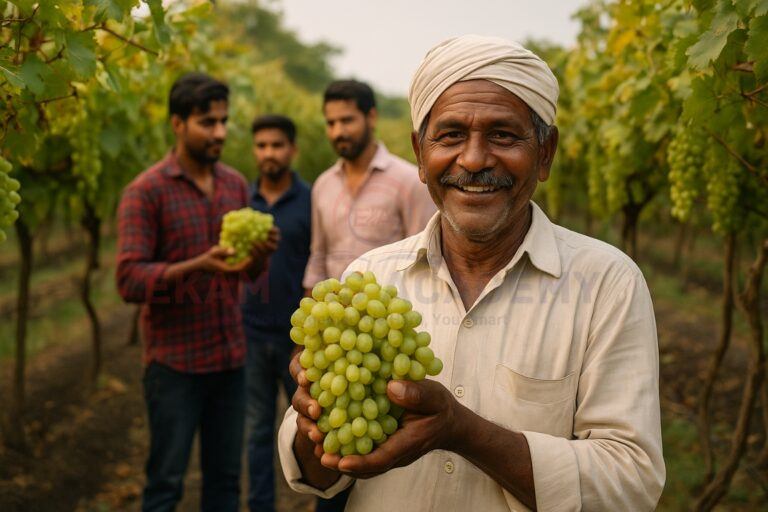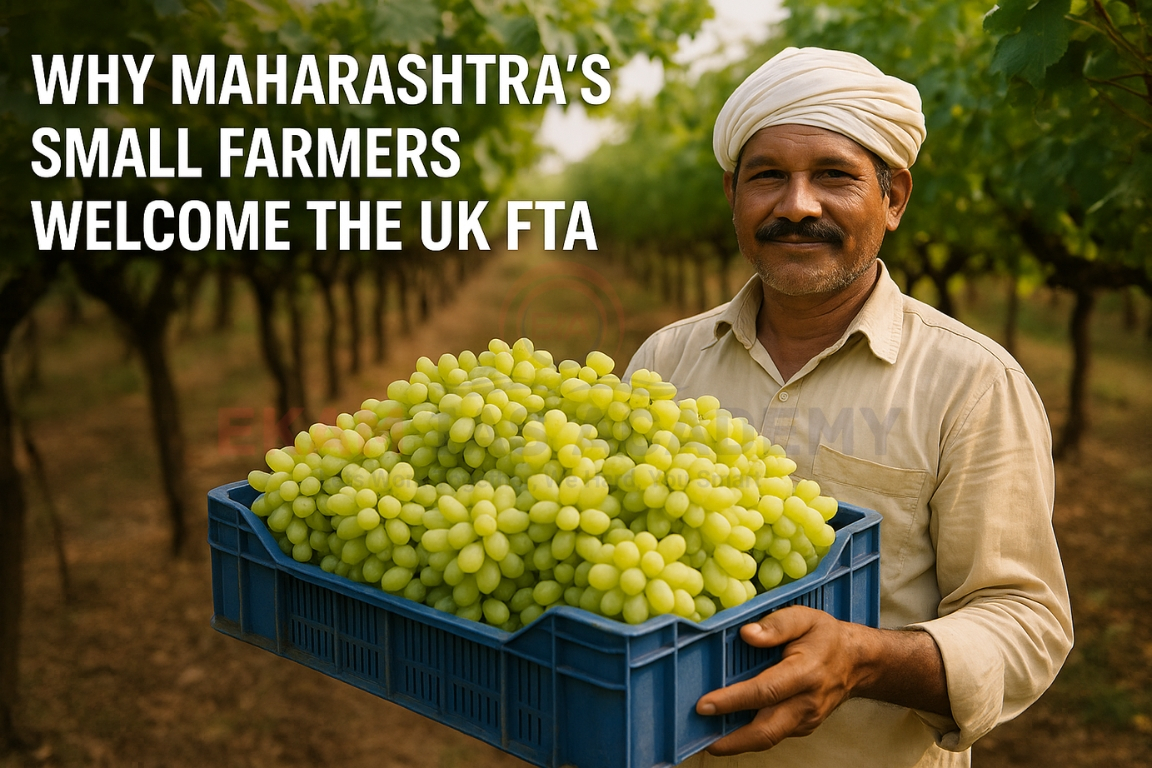The India–U.K. Free Trade Agreement (FTA) has removed tariffs on Indian grapes entering the U.K. market. This reform is expected to boost incomes of small and marginal farmers in Maharashtra, the grape hub of India.
Background:
- Maharashtra as Grape Capital: Nashik district leads grape production in India. In 2023–24, India exported over 3 lakh metric tonnes of grapes worth $400 million.
- U.K. as Key Market: U.K. is one of India’s largest grape importers. Earlier, Indian grapes faced 8% duty, while competitors like South Africa and Chile exported duty-free.
- FTA Impact: Duty removal makes Indian grapes more competitive in the global market.
Benefits for Farmers
- Higher Returns: Farmers can now earn 15% more as tariff costs are eliminated.
- Improved Livelihoods: Families are able to invest in education, housing, and expansion of landholdings.
- Encouragement to Youth: Younger farmers are experimenting with better farming techniques and considering agri-allied businesses.

Collective Farming Model – Sahyadri Farms
- Farmer Producer Company (FPC): Over 14,000 small and marginal farmers are part of Sahyadri Farms.
- Market Access: Collective farming helps smallholders pool resources, ensure volumes, and meet international demand.
- Quality Standards: Farmers follow strict testing of soil, vineyards, and produce to meet European norms (uniform size, taste, and chemical-free).
- Export Success: Sahyadri exports 22,000 metric tonnes annually, 30% of which goes to the U.K., with a market share of 17% in grape exports.
Wider Implications of the FTA
- Diversification of Crops: Besides grapes, fruits like mango, pomegranate, and citrus could also benefit.
- Rising Domestic Standards: Compliance with global food safety norms will improve quality in Indian markets too.
- Boost to Collective Farming: With 90% of Indian farmers being small or marginal, the FTA highlights the need for pooling resources for global competitiveness.
FARMER PRODUCER COMPANY (FPC)
A Farmer Producer Company (FPC) is a type of company formed by farmers under the Companies Act, 1956 (later continued in the Companies Act, 2013). It combines the benefits of a cooperative society and a private limited company.
Who can form it?
- Minimum 10 or more farmers can come together to form an FPC.
- Institutions or groups of farmers can also be members.
Key Features:
- Works like a company but is run by farmers as shareholders.
- Limited liability of members (like a company).
- One member–one vote principle (like cooperatives).
Functions:
- Bulk purchase of seeds, fertilizers, and inputs at cheaper rates.
- Collective marketing of farm produce to ensure better prices.
- Facilitation of storage, processing, packaging, and branding.
- Providing training, technical support, and credit facilities.
Conclusion:
The India–U.K. FTA is a significant opportunity for small farmers in Maharashtra, turning grape cultivation into a profitable venture through collective farming. It not only promises better global competitiveness but also strengthens farmer livelihoods and sets higher quality benchmarks for Indian agriculture.





